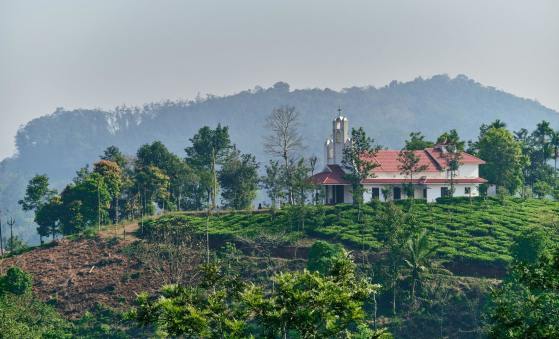
‘The Mission’ is a 1986 British period drama film about the experiences of a Jesuit missionary in 18th-century South America. The film is complex and compelling, spiritually stirring in its portrayal of the stand Spanish Jesuits take to protect the identity of a remote South American tribe—the Guarani Indian people. The narrative intertwines political pressures of colonial powers, the predatory racism of European settlers who support slavery, and the pragmatic concerns of the Jesuits and the Church.
‘The Mission’ is based on historical facts surrounding the 1750 Treaty of Madrid, in which Spain ceded part of its territories in Paraguay to Portugal, primarily the areas where Jesuits maintained their missions. A key aspect of the film is an important subtext: the impending suppression of the Society of Jesus in most parts of Western Europe, beginning in 1759, formalized in 1773, and lasting only until 1814. The film portrays the resilience of the Guarani people despite overwhelming odds and the Jesuits’ efforts to accompany them, protecting their rights, customs, and preventing their absorption into the lucrative slave trade. The film addresses bureaucratic obstacles, political and religious machinations, intrigue, greed for power and profit, and other human failings. Yet it also examines the challenges and hostilities faced when attempting to confront the system and power structures. Above all, it is a film about prophetic witnessing—the trials and hardships disciples of Jesus endure when demonstrating unflinching courage to go to the peripheries and identify completely with suffering people.
The Catholic Church observes ‘World Mission Day’ on Sunday, 19 October. This year holds special significance as it is the Jubilee Year, with emphasis on becoming ‘pilgrims of hope.’ Notably, the Synodal process concluded a year ago, and focus continues on the Synodal Journey with three interrelated dimensions: communion, participation, and mission.
One of Pope Francis’s last messages before his passing was his statement for ‘World Mission Day 2025.’ Opening his message, he stated: “For World Mission Day in the Jubilee Year 2025, the central message of which is hope, I have chosen the motto: ‘Missionaries of Hope Among all Peoples’. It reminds individual Christians and the entire Church—the community of the baptized—of our fundamental vocation to be, in the footsteps of Christ, messengers and builders of hope. I trust this will be for everyone a time of grace with the faithful God who has given us new birth in the risen Christ ‘to a living hope’ (cf. 1 Pet 1:3-4). Here, I would like to mention some relevant aspects of our Christian missionary identity, so that we can let ourselves be guided by the Spirit of God and burn with holy zeal for a new evangelizing season in the Church, which is sent to revive hope in a world over which dark shadows loom.”
Pope Francis contextualizes his message in today’s grim realities and issues affecting ordinary people: “Impelled by this great hope, Christian communities can be harbingers of a new humanity in a world that, in the most ‘developed’ areas, shows serious symptoms of human crisis: a widespread sense of bewilderment, loneliness, and indifference to the needs of the elderly, and a reluctance to assist our neighbours in need. In the most technologically advanced nations, ‘proximity’ is disappearing: we are all interconnected, but not related. An obsession with efficiency and attachment to material things and ambitions make us self-centred and incapable of altruism. The Gospel, experienced in community life, can restore us to whole, healthy, redeemed humanity.”
In this final quarter of Jubilee Year 2025, it is important to revisit the Bull of Indiction ‘Spes Non Confundit’ (Hope Does Not Disappoint), dated May 9, 2024. Pope Francis clearly identified various groups that seemed to have succumbed to despair. He challenges all: if we are serious about this Jubilee Year, we must have the prophetic courage to address the root causes of all that is wrong in our world. We must be witnesses. As pilgrims, we must embrace hope entirely and witness to all around us, ensuring hope becomes a reality for those who need it most. That is Mission and a call to mission!
The second part of the Synodal Report, ‘A Synodal Church in Mission,’ reiterates the non-negotiable principle that we are ‘All Disciples, All Missionaries.’ There is no debate: the ‘Church is mission.’ The report states, “Rather than saying that the Church has a mission, we affirm that the Church is mission. ‘As the Father has sent me, I also send you’ (Jn 20:21): The Church receives from Christ, the Father’s Envoy, its own mission. Sustained and guided by the Holy Spirit, she proclaims and bears witness to the Gospel to those who do not know or accept it, with that preferential option for the poor rooted in Jesus’ mission. In this way it contributes to the coming of the Kingdom of God, of which it ‘constitutes the germ and the beginning’” (cf. LG 5). This represents a clear paradigm shift: ‘the Church IS Mission!’
For some, the words ‘Mission’ and ‘Missionary’ are used derogatorily; for others, they are suspect—a Christian activity to proselytize and convert. This perception is inaccurate. The word ‘mission’ is not the monopoly of any one group—it belongs to all humankind. Generally, ‘mission’ means an important task, duty, or purpose assigned to a person or group. It can refer to a specific official role, a vocation or calling in life, a diplomatic or religious delegation, or a specific objective like a space flight or military assignment. Today, several Hindu groups, such as the Ramakrishna Mission and Chinmaya Mission, include it in their names to emphasize their key programs: social service, education, and spiritual outreach. Similarly, the corporate sector and most reputable organizations base their meaning on their mission statement.
‘Mission’ is therefore all-embracing: it belongs to everyone and cannot be exclusive or the monopoly of one religion or ideology. An oft-quoted statement observes: “Life is a mission, not a career. A career is a profession; a mission is a cause. A career asks: what is in it for me? A mission asks: how can I make a difference?” In a world overwhelmed with hate, violence, injustice, and despair, we are all called to make that difference. In essence, like in the film ‘The Mission,’ every human has a calling and responsibility to be a ‘missionary of hope among all peoples.’
Fr Cedric Prakash SJ is an internationally renowned human rights, reconciliation, and peace activist-writer. Contact: cedricprakash@gmail.com.




